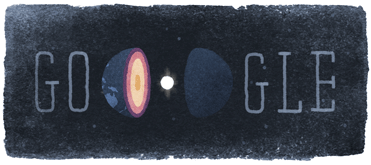NI nani ? kuchukua mikoba ya Tido Mhando! TBC
| General Manager Bussiness Support: Joe Rugalabamu | General Manager Technical: Mr.Diotrefu Abenago | |
| DHRA: Mrs Jocelyne Lugora | DOM: Mrs Leocardian Rugimbana | |

TBC strives to be a truly Public Broadcaster that is accountable to the public through its programmes that are characterised as follows: Broadcast throughout the Nation Broadcasting quality programmes with universal appeal, Broadcast impartial programmes Accessible to all citizens regardless of their ideology, religion, class or physical disability, Funded mostly by users
HISTORICAL BACKGROUND
The history of broadcasting in Tanganyika, especially TBC can be traced back to world war two. The increase demand for information on behalf of Africa population and the government‘s want to establish an effective instrument for propaganda led to first discussion about the foundation of broadcasting system in Tanganyika. Until July 1st 1951 the goal to have a Government Radio was realized by inaugurating the then SAUTI YA DAR ES SALAAM under the social Development department. However at the very beginning, Sauti ya Dar es Salaam broadcast for only one hour per week in Swahili, with the program repeated twice a week. All transmissions were devised under the general control of the social development department and the station was supplied with daily news bulletin from public relations department with an estimated audience of merely 1,000 people listeners.
In February 1952, a Marconi medium –wave transmitter was added to the equipment in use, and subsequently the air time was increased to one hour per day in the evenings During 1953 the program was extended to three hours daily, two hours in Swahili and one in English. Furthermore morning transmission for school was introduced at experimental stages. From March 1st to April 30th 1954, the first regular school broadcasts went on air, supplying programs for middle school, secondary school and teachers training centres. Total education air time came to five hours per week which was shared among the already mentioned school broadcasts, the English teaching program “sema kiingereza” and Swahili by Radio. On those days the reception was already good in coastal towns such as Tanga, Lindi, Mtwara and Mombasa in Kenya, as well as Arusha, kongwa, Nachingwea and Mbeya.
TANGANYIKA BROADCASTING SERVICE
In 1955, Sauti ya Dar es Salaam was transformed into a governmental department named Tanganyika Broadcasting Service (TBS). The station moved to Pugu Road (Today’s Nyerere Road) . Transmitting a 20 KW medium-wave transmitter, which was the most powerful in east Africa by that time, TBS gained an almost territory-wide coverage and reception reports were received from countries as distant as Japan, Finland and News Zealand. TANGANYIKA BROADCASTING CORPORATIONWith the view of having a more independent Radio in July 1st 1956, the Tanganyika Broadcasting Corporation, known as TBC, came into being. However the independence was still not prevalent because members of the board of the corporation were appointed the Governor of Tanganyika while emoluments continued to be paid by the crown.
A remarkable development of TBC could be felt in July 1st 1960, when TBC instituted its own news service, and the Tanganyika standards did no longer supply the station with daily bulletins although news was still purchased from the paper on the agency basis. For international reports, the TBC continued to rely on BBC programmes both in English and Swahili. Hence on the eve of independence, broadcasting in Tanganyika had already achieved some remarkable results. First, three short wave transmitters ensured nearly country wide coverage, and two medium waves transmitters served the capital and its surroundings. Second, 94 of 123 people employed by the station were well trained Africans who were at ease with the operation of the broadcasting systems. Third, transmission to school had passed the experimental stage and was on air for 16 weeks of the year. Altogether, 207 hours were broadcast to schools in 1960. Finally, it is estimated that nearly 500,000 people were listening to the station regularly.
RADIO TANZANIA DAR ES SALAAM (RTD)
In the advent of independence, a more patriotic approach was adopted whereby the TBC was transformed to Radio Tanzania Dar es salaam while its broadcasting policy being controlled by the then Tanganyika National Union TANU, a situation which analysts suggest that it eroded the interest of many people from listening RTD programs as they reflected political agenda of the ruling party. Many listeners tuned to other foreign radio stations like BBC, VOA, Voice of Kenya (VOK), and many others.
TAASISI YA UTANGAZAJI TANZANIA (TUT)
A much desired transformation of Public broadcasting services which took place in many African countries saw Tanzania following the pursuit and hence came with the idea of a single public broadcasting institution and hence he formation of the Tanzania Broadcasting services or in Kiswahili known as Taasisi ya Utangazaji Tanzania TUT which was a result of a merge of Radio Tanzania Na Televisheni ya taifa TVT . ) on 12th June 2004 However due to operational problems TUT could not live long and was replaced by a more envisaged dynamic and ambitious Organisation TBC which was officially launched in May 2008 by His Excellency Jakaya Mrisho Kikwete, the president of Tanzania. The transformation of TUT to TBC as ideally thought represents both changes in organizational structure and efficiency and very much reflecting the real ideas of a Public Broadcaster devoid of State interference especially on Editorial policy. (See TBC editorial policy)











